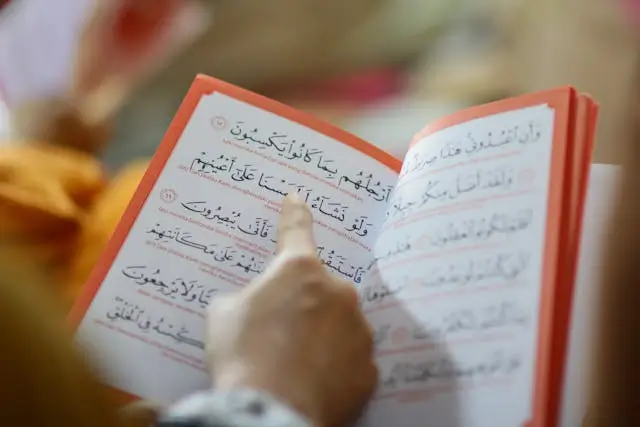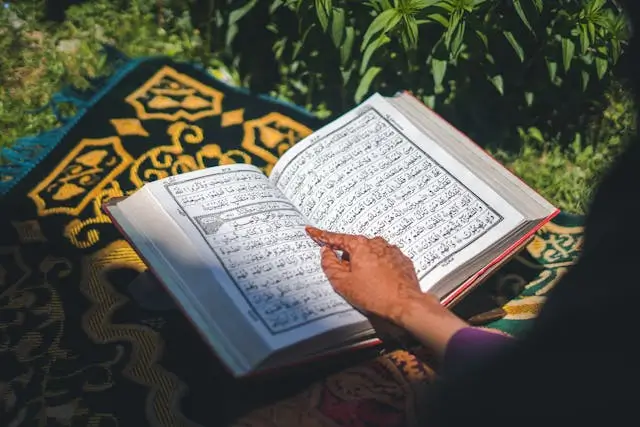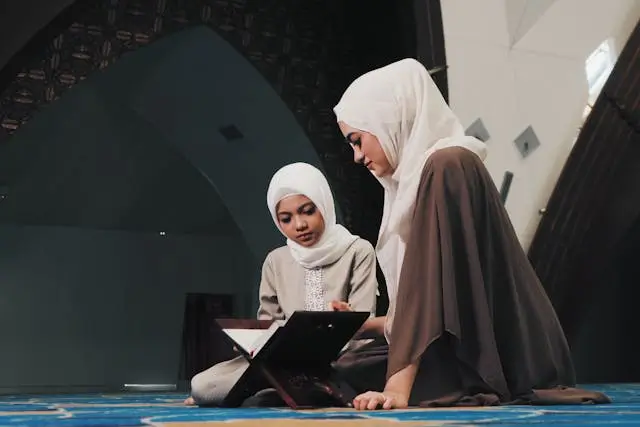Islamic Games: Fun and Faith-Based Learning for Kids and Families
Islam encourages joy, bonding, and learning — especially within families. Children naturally love to play, and when that play is infused with Islamic values, it becomes both fun and spiritually rewarding. Islamic games are not just about entertainment — they help kids learn about Qur’an, Sunnah, akhlaaq (good manners), and imaan (faith) in an engaging way.
In today’s digital world, where kids are often surrounded by screens and distractions, Islamic games offer parents a creative way to strengthen their children’s connection to Allah ﷻ and the teachings of the Prophet Muhammad ﷺ.
What Are Islamic Games?
Islamic games are fun activities designed to help children and families learn Islamic teachings in an interactive, memorable way. These can include:
- Board games and puzzles about prophets and Islamic history
- Online Islamic quiz apps
- Printable games that teach du’as, salah steps, and Arabic alphabets
- Physical games that encourage teamwork and kindness
Such games turn Islamic learning into a joyful experience — a way for parents to instill faith through play.

Why Islamic Games Are Important for Muslim Families
1. Learning Through Play
The Prophet Muhammad ﷺ said:
“Play with your children for the first seven years…” (Ibn Hajar)
Children learn best through play. Islamic games combine fun with faith — teaching stories of prophets, daily du’as, and good manners without the boredom of rote learning.
2. Building a Strong Islamic Identity
Games with Islamic themes help kids proudly identify as Muslims. They understand their deen, learn Islamic etiquette, and build love for Allah and His Messenger ﷺ from an early age.
3. Strengthening Family Bonds
Family game nights that include Islamic trivia or Quranic quizzes create beautiful memories. They also promote teamwork, kindness, and patience — qualities deeply rooted in Islam.
4. Protecting from Negative Influences
Islamic games offer a positive alternative to many modern games that include inappropriate themes. They let kids enjoy themselves without compromising Islamic values.
Types of Islamic Games for Kids and Families
1. Islamic Quiz Games
Fun question-and-answer games about prophets, Islamic months, or Qur’anic stories.
Examples:
- “Who Am I?” (Prophet quiz)
- “Guess the Surah”
- “Islamic General Knowledge Challenge”
These quizzes can be played in groups — at home, school, or in weekend Islamic classes.
2. Islamic Board Games
Board games with Islamic themes are becoming popular worldwide.
Examples:
- Race to Jannah – A game about performing good deeds and reaching Paradise.
- 5 Pillars Game – Learn about Shahadah, Salah, Zakat, Sawm, and Hajj while playing.
- Journey Through the Qur’an – Explore Islamic facts and Qur’anic lessons on a colorful board.
Such games help children visualize Islamic teachings while competing in a healthy, halal way.
3. Memory and Matching Games
Perfect for younger children.
Examples:
- Match Arabic letters to objects (Alif – Asad, Ba – Bait).
- Match du’as with their meanings.
- Memory cards featuring Islamic symbols like the Ka’bah, Masjid, Qur’an, and Tasbih.
These games strengthen both memory and Islamic vocabulary.
4. Digital Islamic Games and Apps
In the digital age, interactive apps can make Islamic learning accessible anywhere.
Examples:
- Muslim Kids 2D Games (learn salah steps and du’as)
- Islamic Quiz Apps (available on Google Play and App Store)
- Quranic Arabic Learning Games (help kids recognize words from the Qur’an)
When monitored by parents, these apps become a fun way to keep children connected to Islam during screen time.
5. Creative DIY Islamic Games at Home
Parents can easily make fun Islamic games using household items!
Ideas:
- Create a “Good Deed Jar” – Each family member writes good deeds to perform daily.
- “Salah Step Race” – Use cards to teach prayer steps in the right order.
- “Ramadan Bingo” – Mark good deeds like helping others, fasting, or reading Qur’an.
Such activities encourage creativity and togetherness.
Games for Special Occasions
🎁 During Ramadan
Ramadan is the perfect time for faith-based games:
- “Ramadan Challenge Board” – Track Qur’an reading, charity, and prayers.
- “Fasting Hero” – Reward kids with stars or stickers for completing fasts and good deeds.
🕋 During Hajj and Eid
- “Hajj Journey Game” – Kids learn the Hajj steps (Tawaf, Sa’i, Mina, Arafat) interactively.
- “Eid Treasure Hunt” – Hide small gifts or Islamic facts to teach Eid traditions joyfully.
These games bring Islamic occasions to life in a meaningful way for children.
Benefits of Islamic Games for Kids
| Benefit | Islamic Value Learned |
|---|---|
| Strengthen Iman | Tawheed (belief in one God) |
| Build good manners | Akhlaaq and Adab |
| Improve memory | Learning Du’as and Surahs |
| Encourage teamwork | Unity and cooperation |
| Strengthen family ties | Love and bonding |
How Parents Can Use Islamic Games Effectively
- Make it a routine – Have a weekly Islamic game night.
- Play together – Children learn better when parents participate.
- Relate games to real life – After a quiz, discuss how its lesson applies to daily life.
- Reward effort – Praise kids for enthusiasm and good sportsmanship.
- Balance digital play – Choose age-appropriate apps and monitor screen time.
When parents actively engage, these games become a powerful tool to nurture piety, knowledge, and love for Islam.
Islamic Values Children Learn Through Games
| Game Type | Core Islamic Value |
|---|---|
| Prophets Quiz | Knowledge of Sunnah and Qur’an stories |
| Salah Step Race | Importance of prayer |
| Good Deed Jar | Charity and kindness |
| Ramadan Challenge | Patience and self-control |
| Team Quiz | Brotherhood and respect |
These activities reinforce what Islam teaches — not through lectures, but through joyful experience.
The Sunnah View: Joy and Play Are Part of Islam
Islam encourages balance — worship, learning, and joyful recreation. The Prophet ﷺ used to smile, race with his family, and show kindness to children.
He said:
“He is not one of us who does not show mercy to our young.” (Tirmidhi)
Thus, Islamic games are not just about fun — they are acts of nurturing faith with compassion.
FAQs
1. Are Islamic games allowed in Islam?
Yes. Games that promote learning, manners, and togetherness — without haram elements — are encouraged.
2. Are there online Islamic games for kids?
Yes! Many educational websites and apps offer interactive Islamic games and quizzes suitable for all ages.
3. Can Islamic games be played in madrasahs or schools?
Absolutely. Teachers often use them to make Islamic studies more enjoyable and interactive.
4. How do I choose safe Islamic games for my kids?
Avoid games with music, violence, or inappropriate ads. Choose ones that teach Qur’an, salah, or good morals.
Final Thoughts: Play, Learn, and Grow with Islam
Islamic games remind us that faith can be joyful. Through these playful activities, kids learn to love Allah, remember the Prophet ﷺ, and practice good deeds naturally.
In a world full of distractions, turning playtime into spiritual growth is one of the best gifts a Muslim parent can give.
🧩 Let every game in your home become a step towards Jannah, one smile at a time.
At QuranTeacherOnline.co.uk, we believe that learning the Qur’an should be both meaningful and engaging for children and families. Our expert tutors blend traditional Quranic studies with fun Islamic games and interactive activities, making each lesson enjoyable and effective. From memory games of the 99 Names of Allah to quiz challenges on Surahs, we help students absorb the Qur’an, Hadith, and Islamic values in a way that sparks joy and deepens faith. Join us today and watch your child thrive in a nurturing online environment where faith meets fun.







